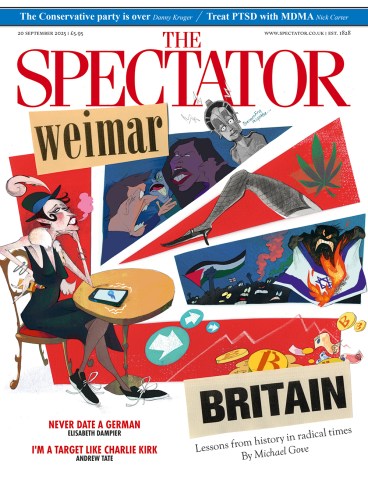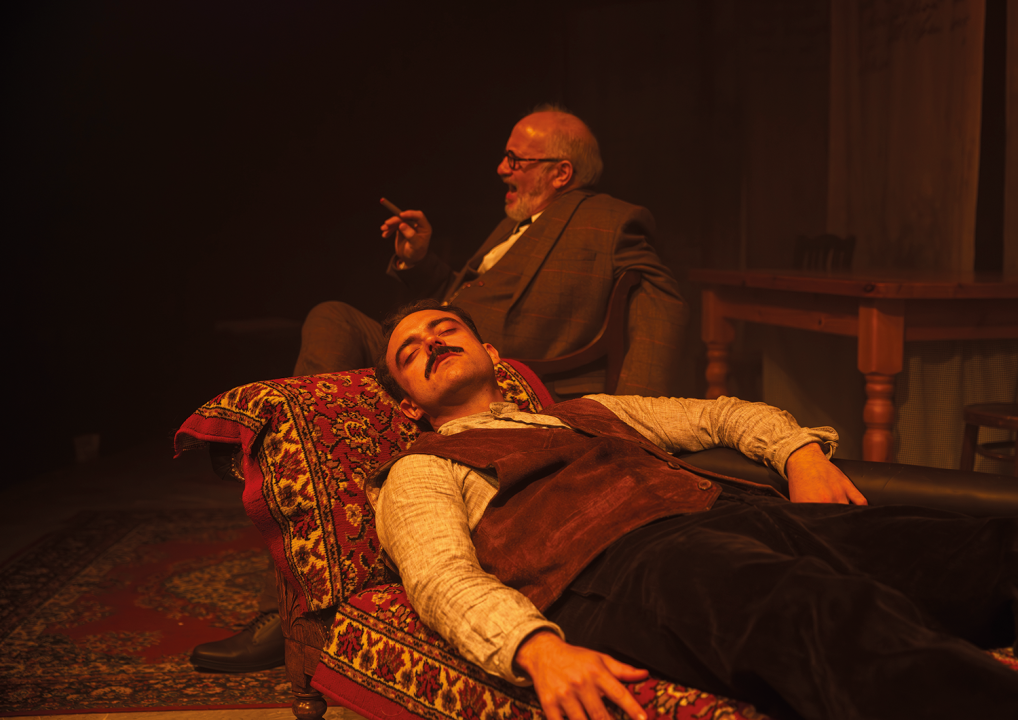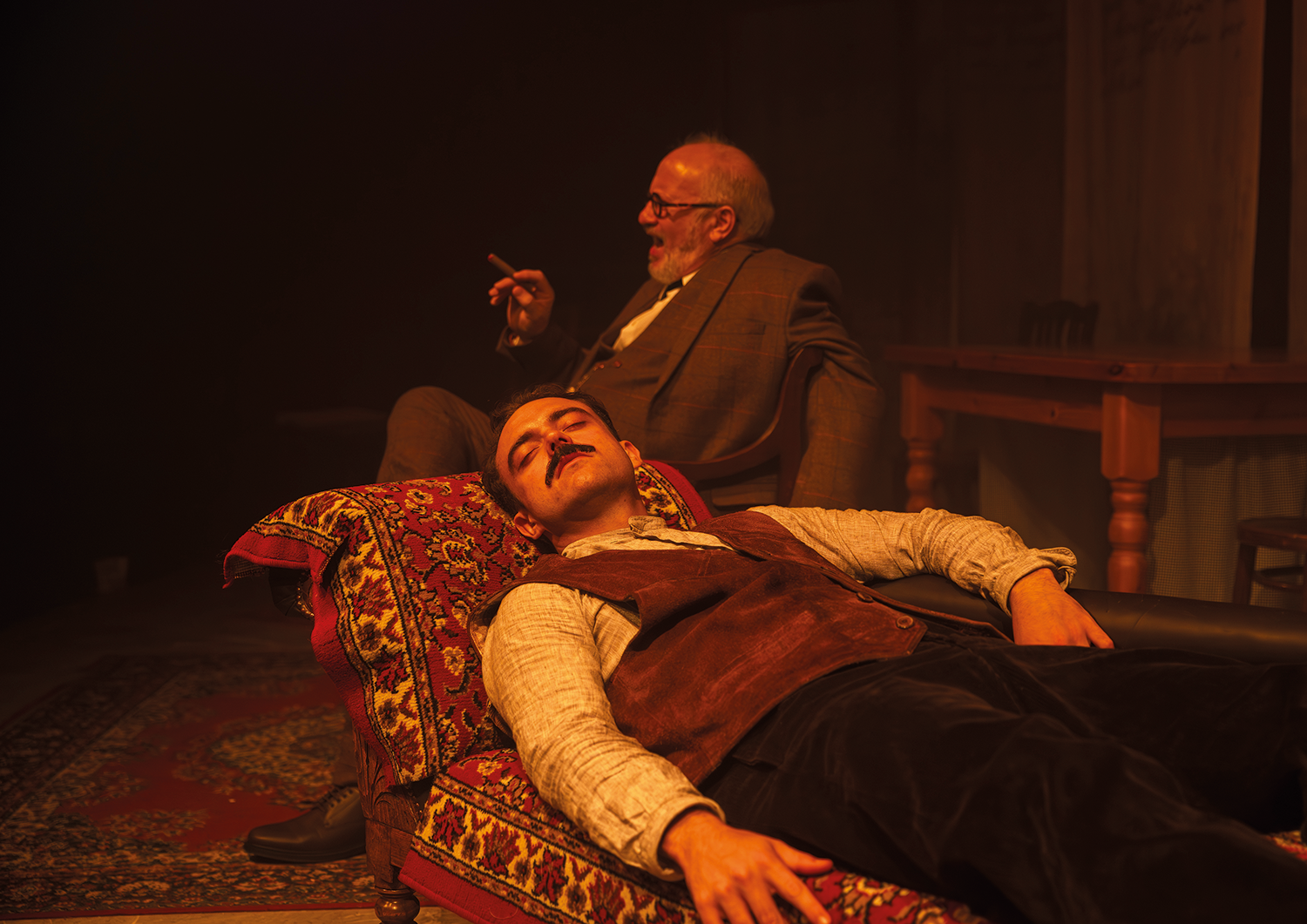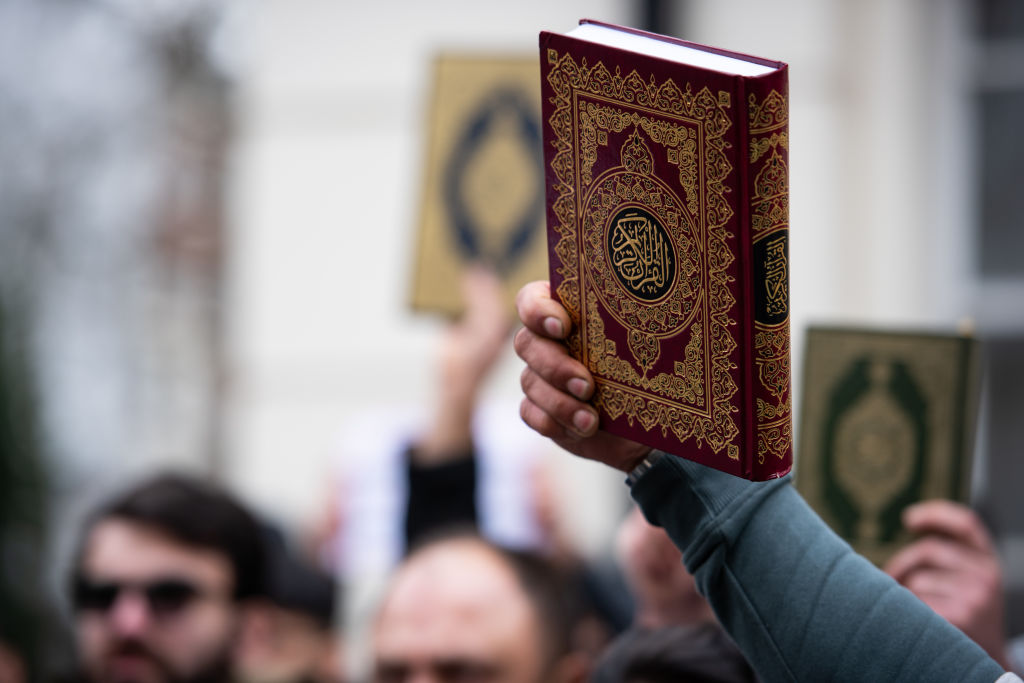
A new play by Lawrence Marks and Maurice Gran, the writers of Birds of a Feather, feels like a major event. This is a period drama that examines an imaginary association between Hitler and Freud and develops into an enquiry about the nature of evil.
As Hitler grows into adulthood he gravitates towards the Freud family, muscling in on their summer holidays
The play opens with a scene from Hitler’s childhood, as his father, Alois, thrashes the young boy while his mother watches and weeps helplessly. This tableau is oddly hilarious because it explains in simple domestic terms the unimaginable horrors of the 20th century. As a teenager, Hitler meets Freud by accident and shares his dream of becoming a painter and an opera composer. ‘A Renaissance man,’ chuckles Freud.
In need of a decorator, he hires Hitler to paint his new apartment and to perform odd jobs like shifting the famous couch into the consultation room. Hitler enlists a passing visitor, Carl Jung, to help with the heavy lifting. This is a hilarious idea. But the dialogue between the three figures might have yielded more comedy. As Hitler grows into adulthood he gravitates towards the Freud family, muscling in on their summer holidays and begging Freud’s daughter, Anna, to join him at the opera. She declines. Another missed chance for the writers, perhaps.
The title suggests a knockabout comedy but the script is high-minded, well-researched and psychologically astute. The first half is much funnier than the second, which darkens as the second world war approaches. And the characterisation favours Freud too heavily. He comes across as a wise, sensitive, charming, open-hearted genius. Hitler, on the other hand, is just a ranting, emotionally damaged nutcase. This mismatch harms the drama as a work of art.
Freud has all the best lines. When Austria is annexed in 1938, the Jews of Vienna face harassment on the streets. ‘It took the Germans ten years to learn how to be Nazis,’ says Freud. ‘The Austrians have learned it in an afternoon.’ Freud’s apartment is raided by the Gestapo who want to find any references to Hitler in his case notes. Afterwards they force Freud to sign a form declaring that he was well treated. ‘I highly recommend the Gestapo to anyone,’ writes Freud. This is a highly amusing play in parts. Perhaps too ponderous in others. Great direction from Isaac Bernier-Doyle. Jonathan Tafler’s warm, mischievous Freud is brilliant and Sam Mac does well as the stiff, awkward, jaw-grinding Hitler.
Seagull: True Story takes ages to get started. First the manager welcomes the audience to the venue and asks them to applaud the technicians in New York where the play recently completed a run. Why? To remind us, perhaps, that this drama reaches across oceans and continents. The manager then introduces a Russian singer who croons a folk song in his native tongue. After this, a comic narrator appears. He asks us if we know of the Moscow Art Theatre. We do. The Seagull premiered there in 1898 with Stanislavski as the director. The curtains swish back and a troupe of actors are revealed in the middle of a revival of this play at the Moscow Art Theatre in 2022.
The production features a comic ‘Freedom Dance’ performed by characters in spangly skirts. At this point, the show proper begins and we meet the main character, Kon, a Russian director who is fine-tuning his production. Kon, who uses an English accent for some reason, talks to the actors but his rehearsal is interrupted by nightmarish screeching overhead. The invasion of Ukraine has begun. Putin’s officials order Kon to cut out the ‘Freedom Dance’ – an excellent idea – but he reacts with hysterical rage and complains that his artistic integrity has been violated. He then commits an unpardonable sin by deserting the show and the actors (perhaps hoping to dodge the draft at the same time) and fleeing to New York.
The script is based on the experiences of Alexander Molochnikov, who also directs. But he can’t stop tinkering
There he poses as a Chekhov expert – and conceals the fact that he has just run away from a production of The Seagull in his native land. It’s impossible to sympathise with Kon’s fickle, narcissistic, yellow-bellied personality. The script is based on the experiences of Alexander Molochnikov, who also directs. But he can’t stop tinkering. Centre stage, he places a dialogue between two characters. Stage right, he has an actor impersonating a bird. Stage left, a musician is strumming jazz chords on a guitar. Stage rear, some actors are dancing. It’s ruinously muddled. Many of the cast are too smitten with themselves and they seem convinced that their mere presence on stage is a cause for jubilation.
The play poses questions about the duty of artists to respond to a military conflict. But why should they get involved? They’re not soldiers, diplomats or politicians. Asking actors to resolve a war is like asking fish to build a swimming pool.









Comments